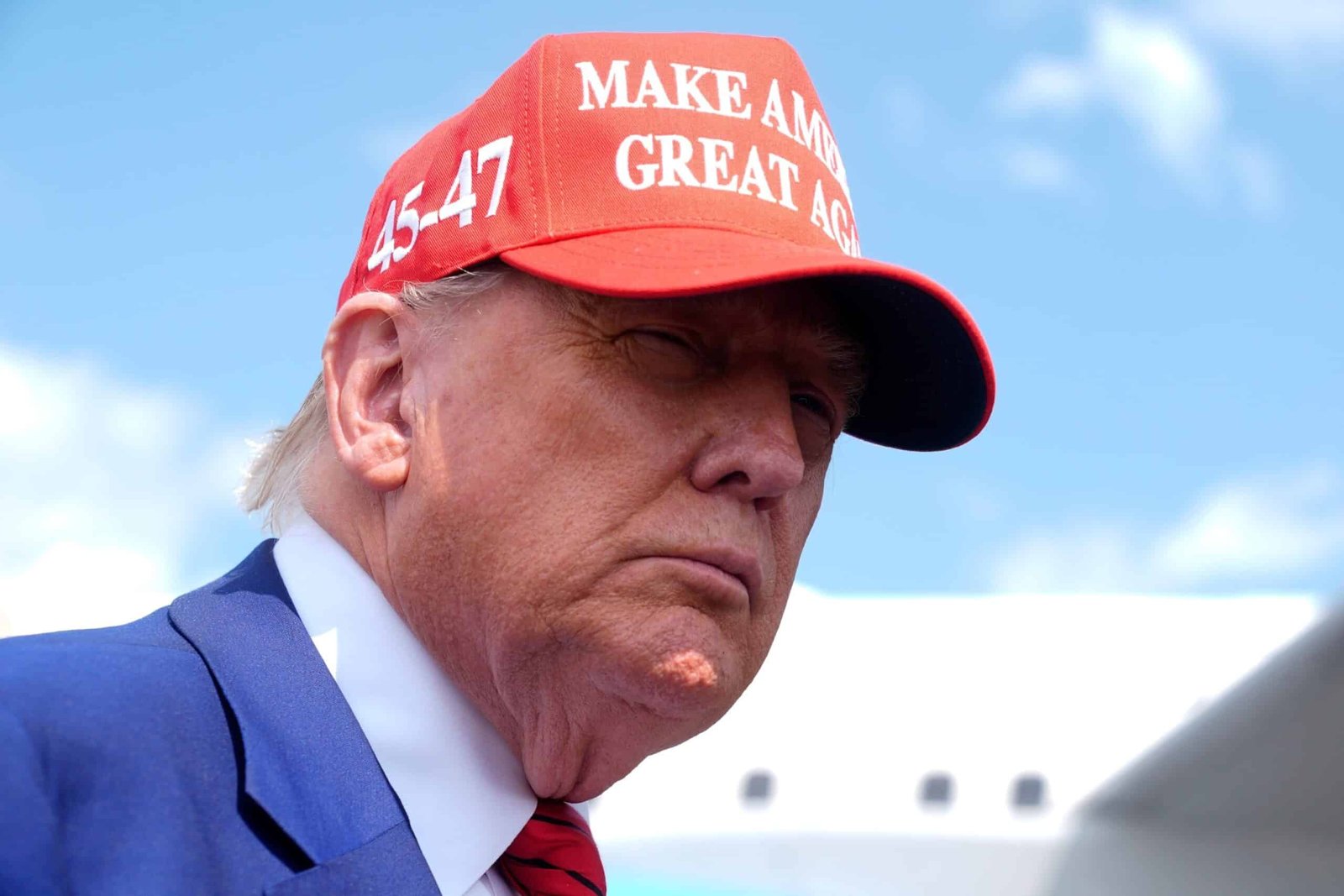Under a self -imposed deadline to continue diplomacy with Iran and without direct negotiations with the United States on the horizon, President Donald Trump recognized Friday that the situation in the Middle East seemed to be in a dead man, but said he would still give the Iranians the opportunity to “reach their senses.”
“I am giving them a period of time, and I would say that two weeks would be the maximum,” said the president.

President Donald Trump talks about the press when arriving at Morristown Municipal Airport in Morristown, New Jersey, on June 20, 2025.
Manuel Balce Ceneta / AP
Early in the day, Iranian Foreign Minister Abbas Araghchi concluded conversations with several of his European counterparts in Geneva, but reiterated Iran’s demand for Israel to stop the attacks against the country before he was willing to seriously pursue any negotiation.
When asked if he would ask the Israelis to stop, Trump said it was “very difficult to make that request right now.”
“If someone is winning, it is a bit more difficult to make someone losing,” he said. “But we are ready, willing and capable and we have been talking to Iran and we will see what happens.”

President Donald Trump talks about the press when arriving at Morristown Municipal Airport in Morristown, New Jersey, on June 20, 2025.
Mandel and/AFP
The president also downloaded the conversations held in Europe, minimizing already low expectations for great advance.
“They didn’t help,” Trump said about discussions. “Iran doesn’t want to talk to Europe. They want to talk to us. Europe will not be able to help in this case.”
But despite the president’s statement, Iran has so far rejected a permanent offer from the United States to resume nuclear negotiations.

Iranian Foreign Minister Abbas Araghchi attends the 59th Session of the Human Rights Council at the United Nations European Headquarters in Geneva, Switzerland, on June 20, 2025.
Trezzini Marcial/EPA-EFE/Shuttersock
Some administration officials have argued that the president’s position is preparing the scenario so that Iran is ultimately cave, which is inclined that the regime will be folded under regular Israeli bombardment and finally retreats from the key demands in enriching the uranium under a new nuclear agreement with the United States.
They also see that Iran’s leadership is scrambled by Israel’s assault and predict that it could spend several days before it is logistically possible to call a significant round of negotiations with the United States.
Meanwhile, as the strong differences between Israeli and American evaluations about Iran’s nuclear skills have reached the avant -garde, Trump has also shown distrust of his own intelligence community, including his own national intelligence director, Tulsi Gabbard.

National Intelligence Director Tulsi Gabbard leaves the United States Capitol after an audience of the Senate Subcommittee in June. 16, 2025, in Washington, DC
Mariam Zuhaib/AP
On Friday, Trump was asked about Gabbard’s testimony to Congress in March that the United States evaluated that Iran was not building a nuclear weapon.
“She is wrong,” Trump said flatly.
Shortly after Trump spoke, Gabbard criticized the media, publishing in X: “The United States has intelligence that Iran is at the point that it can produce a nuclear weapon in weeks or months, if they decide to finish the assembly. President Trump has been clear that it cannot happen, and I agree.”
The president’s decision to stop at Iran’s coup has frustrated Israeli officials, who have been promoting their case private for US military participation for months, according to officials familiar with the matter.
In the United Nations Security Council on Friday, Israel’s permanent representative for the body Danny Danon insisted that his country could do it alone.
“This is not just Israel’s fight, it is the world’s fight. And if no one else fights it, we will do it,” he said.

The Prime Minister of Israel, Benjamin Netanyahu, visits the site of the Weizmann Institute of Science, which was beaten by an Iranian missile flood, in the central city of Rethovot, June 20, 2025.
Jack Guez/AFP through Getty Images
But as Trump reflects on military action and his possible consequences, analysts say that giving Iran time can have their own risks.
“Iran could use conversations simply to buy time in the conflict or, in the worst case, change its nuclear material and run to a bomb, although presumably it would be difficult to develop a capacity of nuclear weapons in the midst of an ongoing war,” said Heather Williams, director of the project on nuclear problems and member of the defense and security of the Department of Security at the Center for Strategic and International Studies.
Already, the security of tens of thousands of Americans in the Middle East is already in danger.
According to the State Department, it has now provided “information and support” to more than 25,000 people looking for guidance on the security situation in Israel, Bank and Iran.
The department is planning government evacuations for US citizens in Israel, but warned that he does not anticipate offering direct assistance to Americans in Iran.




